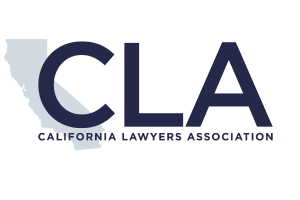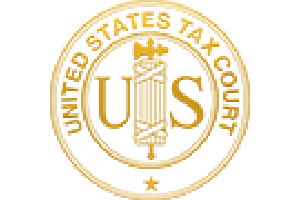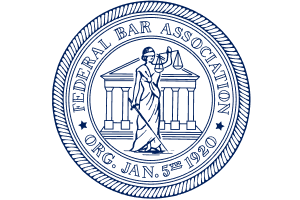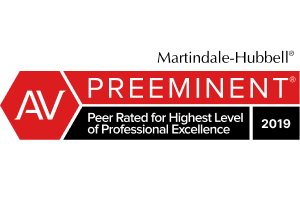Getting Results
CDTFA – Sales Tax Issues for Construction Contractors California
A sales tax audit in California, conducted by the California Department of Tax and Fee Administration (CDTFA), is an examination to ensure that businesses have correctly reported and remitted sales and use taxes. For the construction industry, these audits can be particularly complex due to the nature of the business, which involves various types of contracts, materials, and transactions. Metal fabricators, Electricians, Plumbers, Framers, Concrete Contractors, Roofers and the General Contractors can all be treated differently when it comes to CDTFA sales tax audit in California because sales tax issues are different based on your role as a sub-contractor vs general contractor as well as your particular trade within the construction industry.
Key Points for Construction Companies:
- Tax Liability: Construction contractors are often liable for sales tax on materials and fixtures they use or install. However, the method of taxation can differ based on the type of contract (e.g., lump sum, time and materials, etc.).
- Exemptions and Resale Certificates: Contractors might use resale certificates when purchasing materials if they’re acting as a retailer of those materials by selling them to another contractor or directly to the customer. However, this comes with the responsibility to report and pay sales tax when these materials are used or consumed during construction.
- Audit Triggers: Audits might be triggered by discrepancies between sales tax returns and other reports (like those to the IRS), significant changes in reported sales, or information from industry-specific analytics which might flag anomalies in tax reporting.
- Audit Process: Typically, an audit begins with a notice from the CDTFA specifying the tax periods under review. This might lead to an extensive review of financial records, contracts, and other documentation related to the business’s operations.
Common Issues for Sales Tax Audit for Construction Industry:
Material vs Fixtures
Material:
“Materials” means and includes construction materials and components, and other tangible personal property incorporated into, attached to, or affixed to, real property by contractors in the performance of a construction contract and which, when combined with other tangible personal property, loses its identity to become an integral and inseparable part of the real property.
The following is a list of typical items regarded as materials:
Asphalt, Lead, Sand, Linoleum, Steel, Bricks, Lumber, Stone, Builders’ hardware, Macadam, Stucco, Caulking material, Millwork, Tile, Cement, Mortar, windows, Conduit, Wire netting and screen Oil, Wallboard, Doors, Paint, Wallpaper, Ducts, Paper, Electric wiring and connections, Piping, valves, and pipe fittings, Flooring, Plaster, Weather stripping, Glass, Power poles, towers, and lines, Wall coping, Gravel, Putty, Window screens, Insulation, Reinforcing mesh, Lath, Roofing, Wood preserver, Steel, Bricks, Lumber, Lime, Wall-to-wall carpeting -when affixed to the floor, and Sheet metal.
Fixture:
“Fixtures” means and includes items which are accessory to a building or other structure and do not lose their identity as accessories when installed.
The following is a list of typical items regarded as fixtures:
Air conditioning units, Furnaces, boilers, and heating units, Awnings, Lighting fixtures, Burglar alarm and fire alarm fixtures, Plumbing fixtures, Cabinets, counters, and lockers (prefabricated), Refrigeration units, structure or fixed work, Signs, Television antennas, Electric generators (affixed to and accessory to a building, structure or fixed works), Transformers and switchgear, Vault doors and equipment, Elevators, hoists, and conveying units, Venetian blinds, and Cranes (including moving parts of cranes) affixed or annexed to a building. (Moving parts of cranes are classified as machinery and equipment when furnished and installed pursuant to fixed price construction contracts entered into prior to July 1, 1985.)
Machinery and Equipment
“Machinery and equipment” means and includes property intended to be used in the production, manufacturing or processing of tangible personal property, the performance of services or for other purposes (e.g., research, testing, experimentation) not essential to the fixed works, building, or structure itself, but which property incidentally may, on account of its nature, be attached to the realty without losing its identity as a particular piece of machinery or equipment and, if attached, is readily removable without damage to the unit or to the realty.
“Machinery and equipment” does not include junction boxes, switches, conduit and wiring, or valves, pipes, and tubing incorporated into fixed works, buildings, or other structures, whether or not such items are used solely or partially in connection with the operation of machinery and equipment, nor does it include items of tangible personal property such as power shovels, cranes, trucks, and hand or power tools used to perform the construction contract.
Application of Tax:
Most situation there would be either a use tax or sales tax involved in any items.
Materials:
Construction contractors are consumers of materials which they furnish and install in the performance of construction contracts. Either sales tax or use tax applies with respect to the sale of the materials to or the use of the materials by the construction contractor.
Fixtures:
In General. Construction contractors are retailers of fixtures which they furnish and install in the performance of construction contracts and tax applies to their sales of the fixtures.
Measure of Tax:
In General. If the contract states the sale price at which the fixture is sold, tax applies to that price. If the contract does not state the sale price of the fixture, the sale price shall be deemed to be the cost price of the fixture to the contractor.
Summary of Sales Tax Liability
Lump Sum Contractor
Materials:
- Purchased Tax Paid:
- No additional taxes due if Contractor paid taxes at the time material is purchased
- Purchased No Tax Paid:
- Tax due on the cost of the material purchased.
Fixtures:
- Purchased Tax Paid:
- No additional taxes due if Contractor paid taxes at the time fixture is purchased.
- Purchased No Tax Paid:
- Tax due on the cost of the fixture purchased.
Time and Material Contractor
Materials:
- Purchased Tax Paid:
- No additional taxes due if Contractor paid taxes at the time material is purchased
- Purchased No Tax Paid:
- Tax due on the cost of the material purchased.
Fixtures:
- Purchased Tax Paid:
- Additional taxes due if Contractor charges over the cost of the fixture price.
- Purchased No Tax Paid:
- Tax due on the billed price of the fixture.
Taxation of Labor in Construction: “Fabrication Labor”
In general, construction labor is not taxable. Installation labor of a fixture in most cases is also exempt from taxation, but the fabrication labor involved in the creation of a fixture is taxable. On the contrary, materials used in construction even though labor was used to fabricate what may appear to be a fixture may retain its “material” classification and not subject to further taxation as a newly created “fixture.”
Controlling Law: Regulation 1521
Rule 1521 defines a construction contract as one for creating a building or other structure on land.
It divides the personal property going into construction jobs into two categories:
- Materials, that is, various kinds of tangible personal property which in combination lose their identity and become an integral part of the completed structure;
- Fixtures, which become an accessory to the building and do not lose their identity when placed or installed.
In effect, Rule 1521 classifies the contractor as a consumer of materials who must pay a sales tax on his purchases; classifies him as a retailer of fixtures, who must charge his customer a tax measured by the retail selling price which, in the case of a lump sum contract, is the cost price of the fixture to the contractor. Rule 1521 excludes from the tax base the price of the labor on the construction job.
Materials:
When a contractor fabricates or processes material prior to installation, no tax is due on such processing costs; only the contractor’s actual material cost is subject to the tax. Where the contractor sublets fabrication or processing of material to an outside firm, such fabrication is considered part of the taxable cost of materials.
Eg: Bending, welding of metal structural beams; Sheet metal
Fixtures:
Contractors are the retailers of fixtures which they furnish and install, and tax applies to their sales of the fixtures. If the contract states the selling price of the fixture, tax applies to that price. If no sales price is stated, the taxable retail selling price is the cost price of the fixture to the contractor.
If contractors purchase a manufactured fixture, the cost price is the sales price of the fixture to them.
However, if the contractor manufactures the fixture, the cost price is considered to be:
- The prevailing price at which similar fixtures in similar quantities ready for installation are sold by the contract or to other contractors, or
- If similar fixtures are not sold to other contractors, then the cost price shall be deemed to be the amount stated in the price lists, bid sheets, or other records.
If the sale price cannot be established in the above manner, the cost price shall be the aggregate of the following:
Cost of materials, including freight-in and import duties;
Labor, including fringe benefits and payroll taxes;
- Labor in the Shop
- Labor at job site which is performed before the item is permanently attache to a structure or realty
- Labor charges for job site reassembly of fixture which was originally fully assembled NOT fabrication labor. (ie disassembled for delivery purposes)
Overhead – Pro rata share of all overhead allocatable to the manufacture of the fixture;
Reasonable profit from (minimum 5% of all costs to fabricate) the manufacturing operations for the fixture.





















